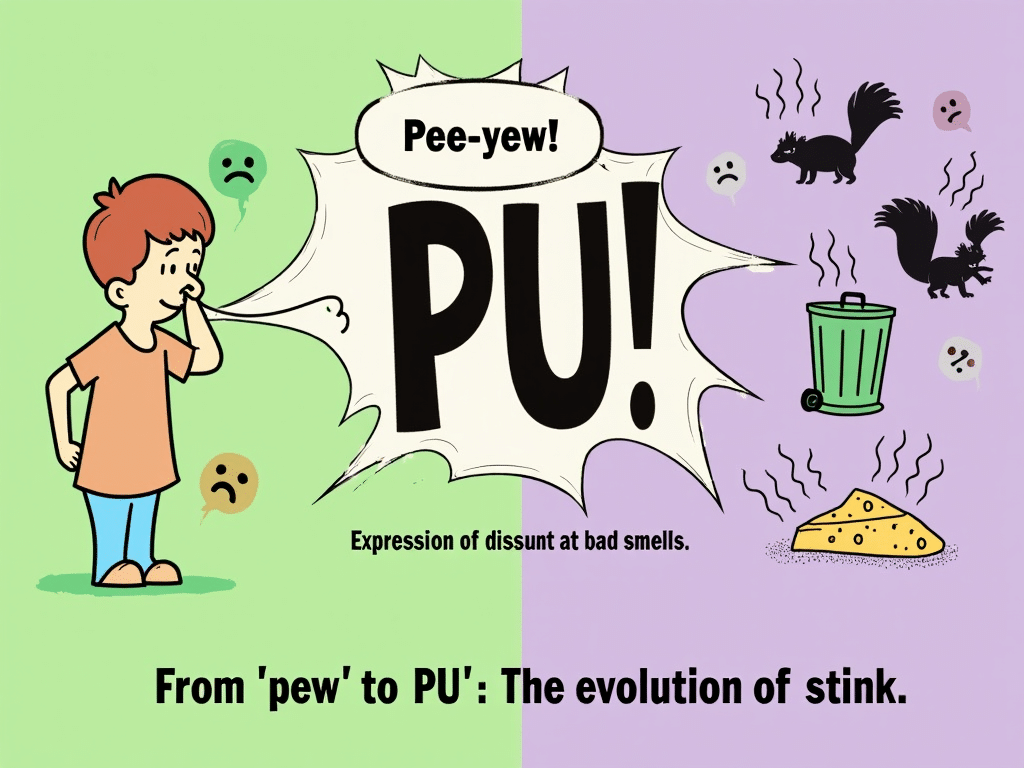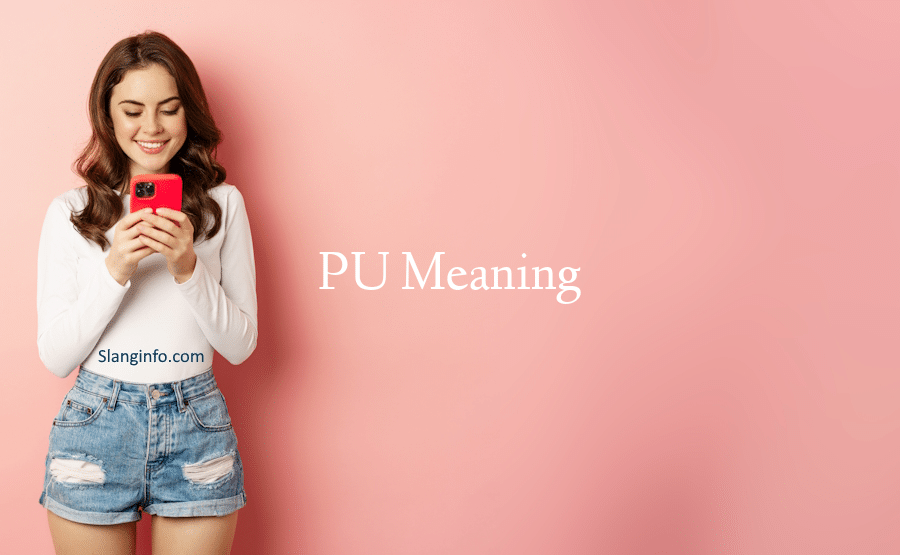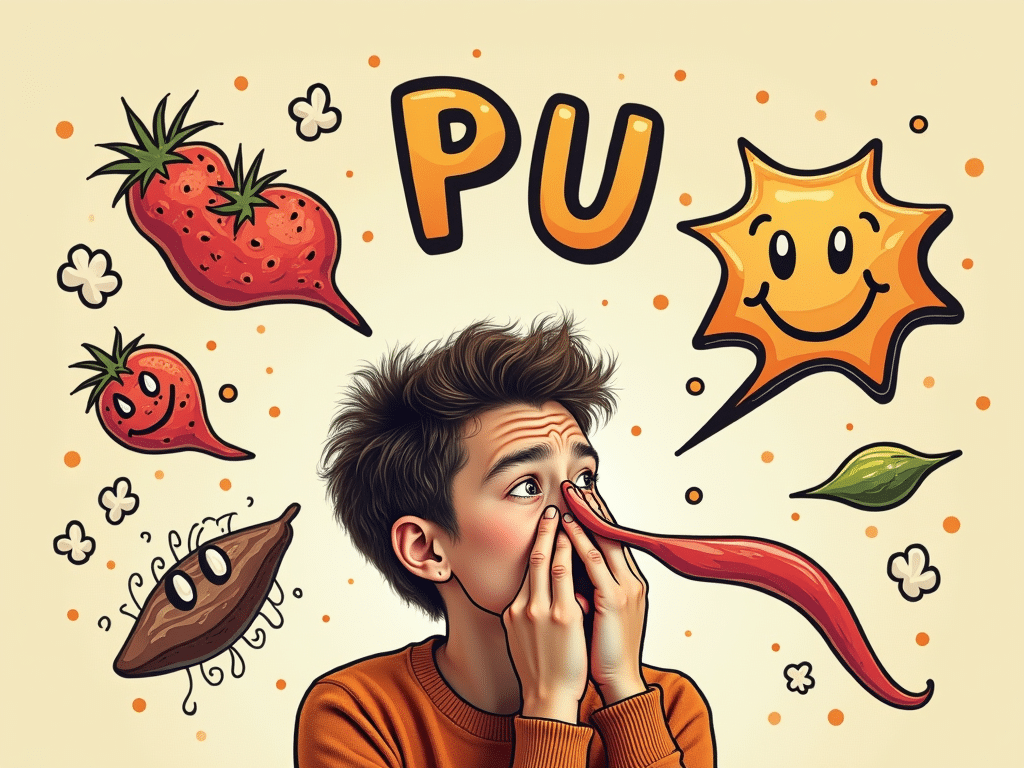Ever come across the term “PU” and wondered what it really means? You’re not alone! PU is one of those phrases that can have multiple meanings depending on the context. From expressing disgust to technical jargon, this little abbreviation packs quite a punch. Let’s break down what PU means and how you might encounter it in everyday life.
| Key Takeaways | Meaning |
|---|---|
| Definition | Expression of disgust; acronym in various fields |
| Common Usage | Slang for unpleasant smells, technical jargon, and social media context |
| Cultural Impact | Widely recognized in casual conversation and online communication |
PU Meaning: Understanding This Versatile Term

The Slang Meaning of PU
When you hear someone say “PU,” they’re usually reacting to something unpleasant. Here’s the lowdown:
- Expression of Disgust: PU is often exclaimed when someone encounters a bad smell or an unpleasant situation. Think of it as your brain’s way of saying, “Yikes!”
- Examples:
- Walking past a garbage can? “PU! That stinks!”
- Someone burns popcorn in the microwave? “PU! What did you do?”
I remember being at a friend’s house when their dog let out a serious stink bomb. Everyone laughed and shouted “PU!” It was like an unspoken agreement that we all needed to clear the air!
Also read: WCGW
PU in Technical Contexts
But wait, there’s more! PU isn’t just a reaction to bad smells; it also has some technical meanings:
- Processing Unit: In computing, PU can stand for processing unit, which refers to the part of a computer that performs calculations and processes data.
- Polyurethane: In materials science, PU often refers to polyurethane, a versatile plastic used in everything from furniture to insulation.
So next time someone mentions PU in a tech meeting, they might not be talking about odors!
PU in Social Media

In the world of texting and social media, PU takes on another layer:
- Snapchat Context: On platforms like Snapchat, “PU” can mean “Pop Up,” indicating a request to send a quick message or photo.
- Examples of Usage:
- “Hey, send me a PU later!” (Translation: Send me a quick message!)
- “I’ll hit you with a PU when I’m free.”
It’s like a shorthand way to keep conversations flowing without getting too formal.
Also read: Oiled up Meaning
The Cultural Impact of PU
The versatility of “PU” has allowed it to seep into various aspects of culture:
- Everyday Language: Whether you’re at school or hanging out with friends, saying “PU” is instantly understood as an expression of disgust.
- Internet Culture: Memes and social media posts often use “PU” humorously to exaggerate reactions to bad smells or situations.
For instance, I once saw a meme that said, “When you open the fridge after forgetting leftovers for two weeks… PU!” It perfectly captured that moment of horror we’ve all experienced!
PU: The Versatility of a Simple Term
Now that we’ve covered the basics, let’s dive deeper into how “PU” is used in various contexts and its cultural significance. This little abbreviation has more layers than you might think!
PU in Different Contexts
- Everyday Conversations:
- In casual chats, especially among friends, PU is often used to express disgust or surprise. It’s a quick way to react without going into detail.
- Example: If someone mentions they saw a mouse in the kitchen, you might respond with, “PU! That’s gross!”
- Texting and Social Media:
- On platforms like Twitter and Instagram, PU can be used humorously. People might post pictures of something unpleasant with a caption like “PU!” to get laughs from their followers.
- Example: A photo of a messy room might be captioned, “Just cleaned my room… PU! 😂”
- Technical Jargon:
- In professional settings, especially in tech or manufacturing, PU can refer to specific terms like Processing Unit or Polyurethane. Understanding this context can help you navigate discussions more effectively.
- Example: “The new graphics card has a powerful PU that enhances performance.”
The Generational Divide
Interestingly, different generations might use or interpret PU in various ways:
| Generation | Interpretation of PU |
|---|---|
| Gen Z | Casual and humorous; often used online |
| Millennials | Mix of casual and serious; understands both meanings |
| Gen X | More likely to associate it with disgust |
| Boomers | Primarily see it as an expression of revulsion |
For instance, I once overheard my dad reacting to a bad smell by saying “PU!” while my younger sister was texting her friend about a funny meme using the same term. It’s fascinating how one little term can bridge generational gaps!
Also read: NTN
Cultural Impact of PU
The cultural significance of PU extends beyond just being a reaction to unpleasantness. It reflects how language evolves in response to social norms and technology:
- Humor and Relatability: Using PU in memes and social media posts creates a sense of community. Everyone can relate to experiencing something gross, making it a shared joke.
- Adaptability: As language continues to evolve, terms like PU show how expressions can adapt to fit different contexts—whether it’s serious or light-hearted.
Final Thoughts on PU
In conclusion, “PU” is more than just an expression of disgust; it’s a versatile term that spans everyday conversations, technical discussions, and social media interactions. Whether you’re laughing with friends about a bad smell or discussing technical specs at work, knowing the various meanings of PU can help you communicate more effectively.
So next time you encounter something unpleasant or need to send a quick message online, remember the power of PU! And if you want to explore more slang and terms that shape our conversations today, check out our articles on TT meaning or deadass. Stay curious and keep those conversations flowing! 😄







